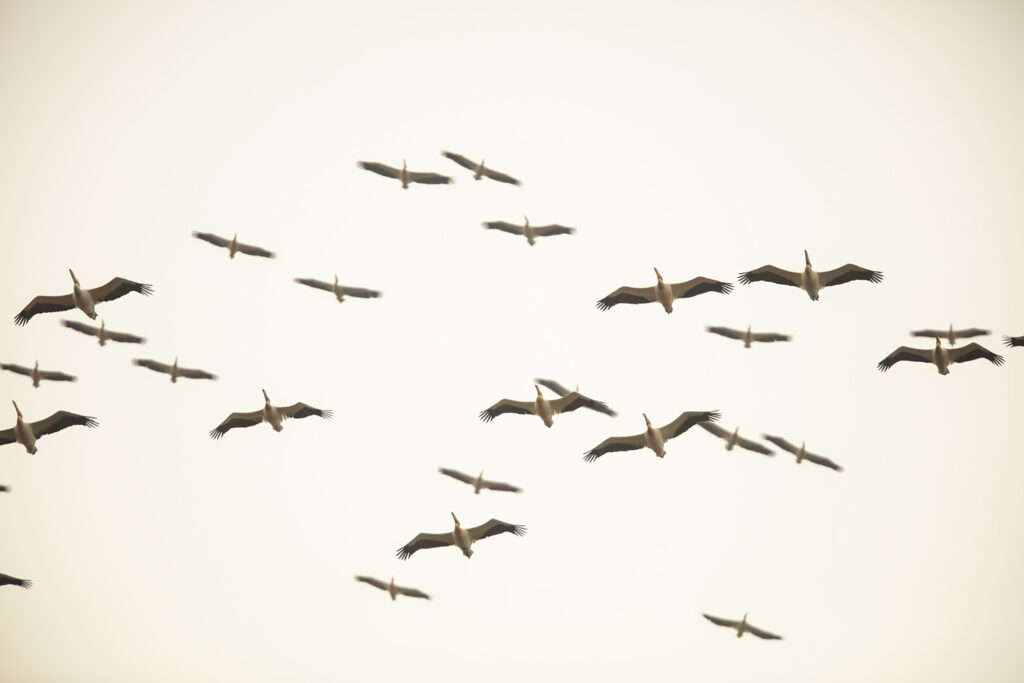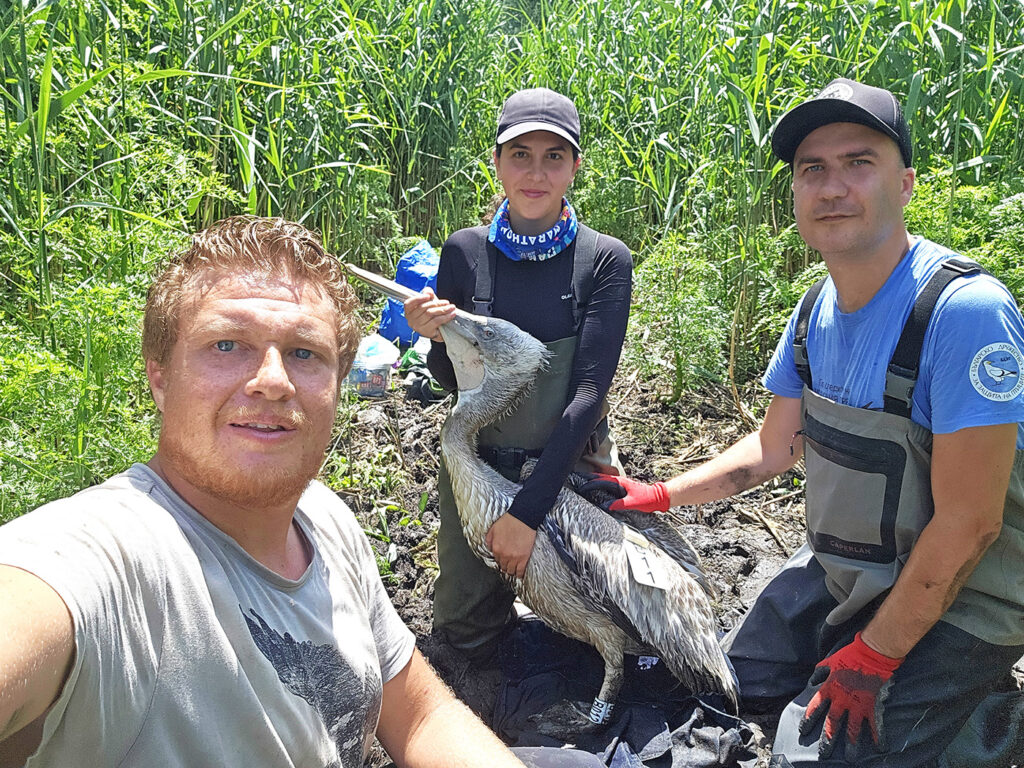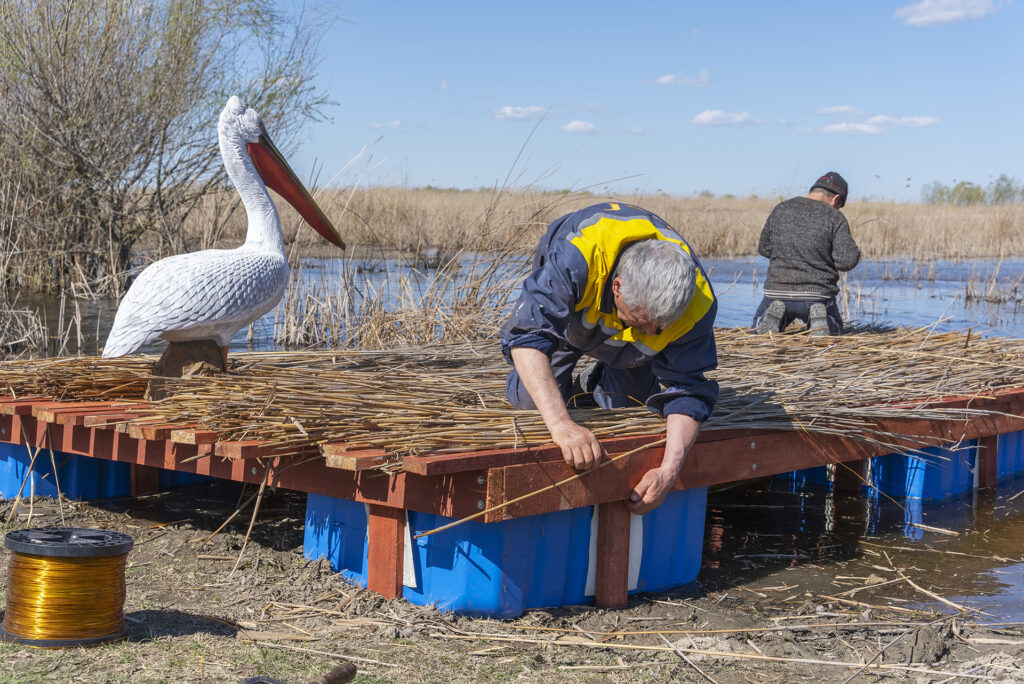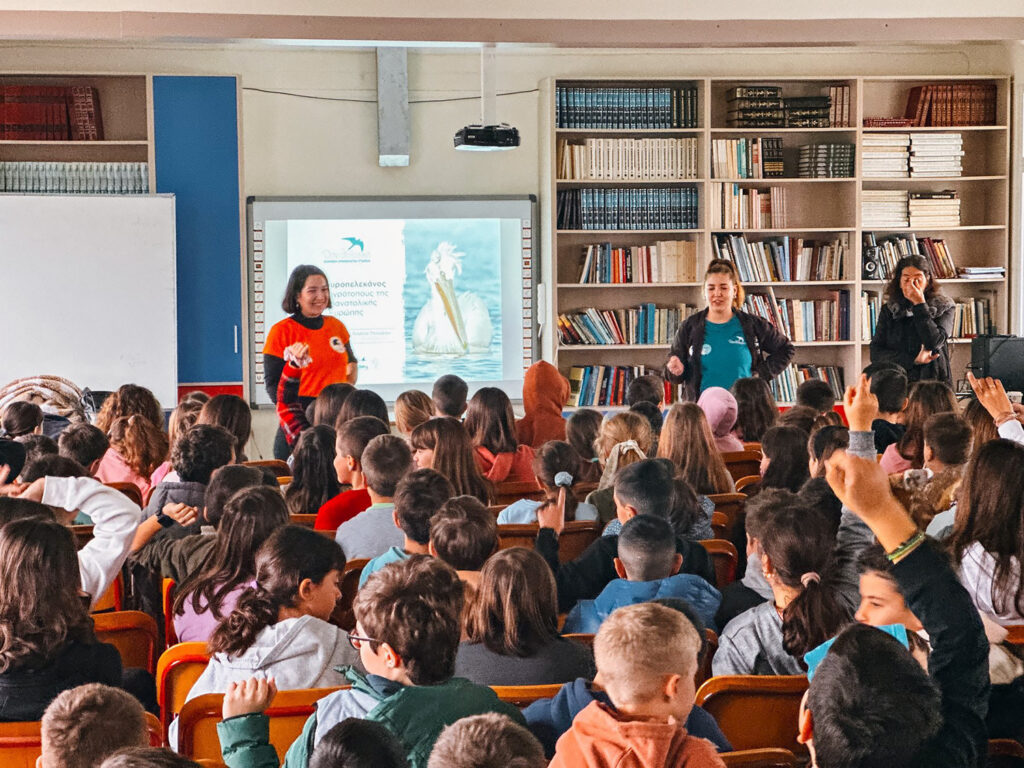As 2024 concludes, the Pelican Way of LIFE project celebrates significant milestones in the conservation of the Dalmatian pelican across Europe.

The past year brought positive developments for pelicans, as their population steadily recovered from the avian flu outbreak of 2022. Bulgaria, in particular, celebrated a highly successful breeding season for Dalmatian pelicans, reflecting encouraging trends seen in other countries.
Across Europe, organizations involved in the Pelican Way of LIFE initiative, coordinated by Rewilding Europe, have worked tirelessly to address threats facing the Dalmatian pelican. From making the powerlines safer for birds and constructing nesting platforms to monitoring populations and conducting educational outreach, these collaborative efforts are creating the favorable conditions for this iconic species to thrive once again in landscapes across the continent.
International Census of pelicans

In 2024, two major international censuses, coordinated by the Hellenic Ornithological Society (HOS), provided critical insights into pelican populations across the Balkans.
In June, the seventh international pelican census recorded 4,344 Dalmatian pelicans, marking a 10% population increase compared to the previous year. This synchronized effort covered key wetlands across the region, although Ukraine’s participation remained limited due to war-related restrictions and inaccessible areas in the delta. Despite these challenges, the data collected serves as a vital resource for the conservation of both Dalmatian and Great white pelicans.
In December, another comprehensive census was conducted, focusing on key wetlands in Greece, Albania, Montenegro, Bulgaria, and Romania. These collaborative efforts across multiple countries are instrumental in turning the tide for pelican populations in Europe.
Tracking pelicans: a vital tool for conservation

Tagging and ringing of Dalmatian pelicans are essential tools in understanding and protecting this iconic species. Across Europe, continuous efforts to equip pelicans with satellite transmitters have provided invaluable data on their migration routes, feeding grounds, and breeding habits. In Romania, 12 pelicans were tagged this year by the Romanian Ornithological Society (SOR) and partners, adding to the growing database of tracked individuals. Similarly, tagging efforts in Western Greece by the HOS team, and in Bulgaria by the Bulgarian Society for the Protection of Birds (BSPB) team have expanded insights into their behavior.
The data collected not only highlights the pelicans’ incredible journeys but also helps identify threats along their flyways. For instance, two pelicans with transmitters were found dead in Bulgaria and Romania, emphasizing the risks they face and guiding targeted conservation efforts.
Mitigating the silent threat of power lines to pelicans

Power lines are a major threat to Dalmatian pelicans, with collisions often resulting in fatal injuries. To address this, conservationists are installing bird diverters along critical flight paths, significantly reducing the risk of collisions by making power lines more visible.
Recent initiatives in Romania and Bulgaria have demonstrated the effectiveness of this approach. In Romania, large-scale diverter installations have been completed by SOR team and partners in key pelican habitats, safeguarding important flyways. In Bulgaria, the innovative use of drones by the BSPB team has enabled the efficient installation of diverters in remote and hard-to-reach areas, minimizing environmental disturbance.
Despite these efforts, power lines continue to claim pelican lives, underscoring the urgent need to expand these measures. By prioritizing diverter installations near the main pelican habitats, we can ensure safer landscapes for this species and other water birds.
Safer nesting conditions for pelicans

Nesting platforms help in the conservation of Dalmatian pelicans, offering secure spaces for breeding in areas where natural habitats are under threat. Across Bulgaria and Ukraine, the construction and maintenance of these platforms have supported conservation efforts.
In the Burgas region, BSPB volunteers worked tirelessly to repair and enhance existing platforms, preparing them for the upcoming breeding season. In Ukraine, new platforms were installed in key wetlands by Rewilding Ukraine team and partners, providing much-needed safe nesting sites for pelicans. Youth volunteers in Bulgaria’s Persina Nature Park also stepped up, contributing to platform upkeep and demonstrating the importance of community involvement.
These platforms, including new installations in the Kalimok-Brashlen Protected Area, mimic natural conditions and have proven highly effective, serving as temporary solutions until the wetlands across Europe return to their natural state. Such rewilding efforts are underway in Ukraine, with the restoration of several Danube lakes and floodplain areas.
Community engagement: building support for pelican conservation

Community involvement is at the heart of the Pelican Way of LIFE initiative, fostering a shared commitment to the conservation of Dalmatian pelicans. Across Europe, activities have engaged people of all ages in meaningful ways, from interactive workshops and educational programs to volunteer-driven projects.
The workshop in Bulgaria and the study in Romania have brought together conservationists and local communities to discuss best practices and raise awareness. Educational events, like the Danube Delta Rewilders Camp and student programs in Messolonghi, have reconnected youth with nature, instilling a sense of environmental stewardship.
Information boards by Rewilding Romania, information materials, exhibitions, and a vibrant presence on SoMe channels like Facebook and Instagram, and the project’s website amplify the initiative’s outreach. The project’s engaging video series by Rewilding Europe, based on the professional video missions, further highlights its efforts, inspiring broader support.
Through these collective actions, the Pelican Way of LIFE initiative continues to empower communities to safeguard this iconic species and the ecosystems they depend on.
None of these achievements would have been possible without the generous funding from the LIFE Programme of the European Union, the Arcadia Foundation, and the Whitley Fund for Nature in Bulgaria. We extend our heartfelt gratitude to our committed partners and passionate volunteers across all the countries involved in the Pelican Way of LIFE initiative. Your steadfast support means the world to us—here’s to an incredible 2025 filled with shared success and continued conservation efforts!